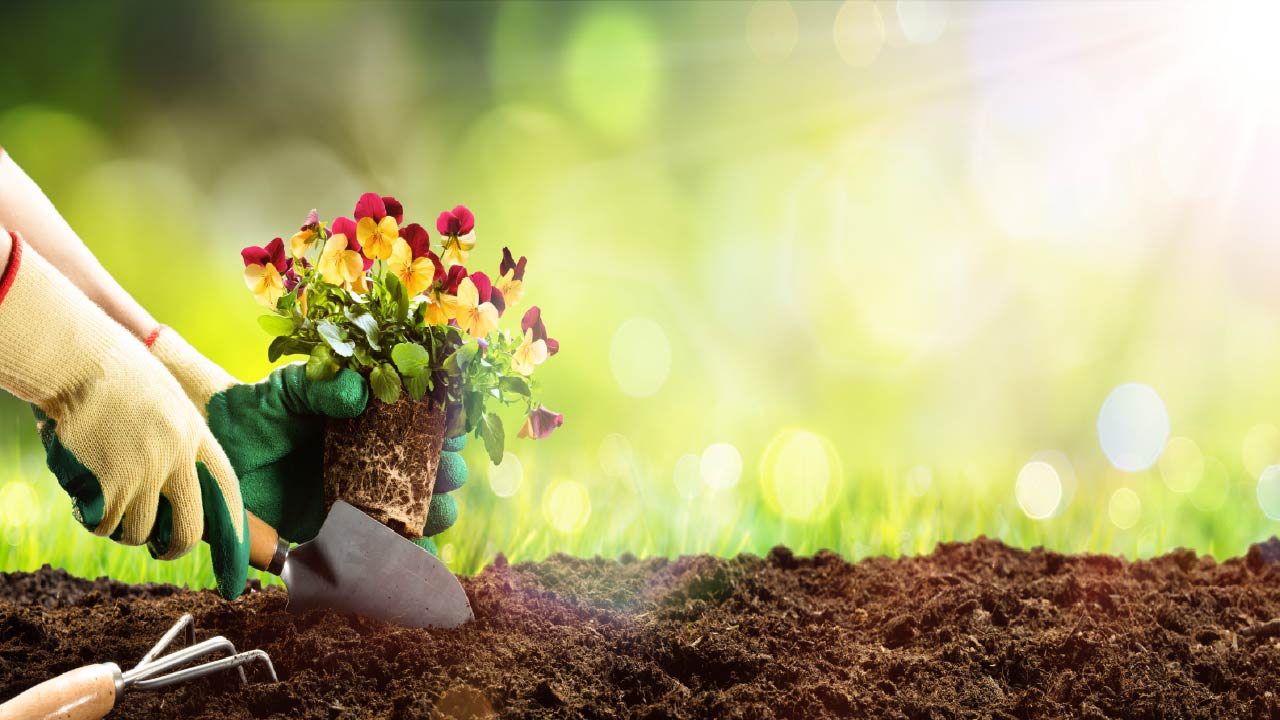8 Essential Daily Gardening Tasks for a Thriving Garden
Apr 23rd 2025
Daily garden care can keep your garden healthy and productive and increase the longevity of your plants. When gardening, we usually focus on big tasks. However, simple daily tasks have the greatest impact on the health of our garden. If you want your plants to grow healthy and withstand environmental conditions, keeping track of everything you need to do daily in your garden is essential.
This article outlines eight essential daily gardening tasks to transform your garden from struggling to thriving.
1. Check Watering or Irrigation
The most important thing to do daily is to ensure your plants are getting the optimal amount of water. Check soil moisture with a simple finger test. Insert a finger into the soil to check if it is dry, needs water, or is still wet. After inspecting the soil, water the plants as needed. Make sure all plants (ground and potted) are well hydrated.
Underwatered plants have yellow, dried leaves. Overwatered plants have saturated soil, and they grow slowly. Plants that are properly watered look healthy and grow well. They're less stressed and less vulnerable to pests and diseases. Water in the early morning to prevent evaporation and allow plants to remain hydrated all day. Moreover, check your irrigation system for leaks or any visible damage. Make sure your system works efficiently.
2. Keep up with Daily Pruning, Weeding, and Cleaning
Plants are healthier when they are well-maintained. Prune dead, dying leaves and branches. Remove spent flowers to encourage new blooming. Weeds are plant killers, so remove any visible weeds to stop them from competing with your plants. Remove fallen leaves, twigs, or dead plant matter from garden beds. Clean your garden daily and keep it tidy and debris-free.
3. Keep an Eye on Bugs and Early Signs of Diseases
Pest and disease control is another crucial daily garden chore you can't ignore for several days. Pests often settle in your garden and go unnoticed because they're small. Remember, they can multiply faster and get out of control.
So, do your garden a favor and check the undersides of leaves and new seedlings daily for eggs or pests. Look for signs of damage, like holes in leaves or discoloration. Then, get rid of them before they spread out.
The same applies to diseases. Look for signs of diseases like white patches on leaves, yellowing spots, and flowers dying before fruiting. Destroy the infected part of the plant as soon as you spot it. Learn about plant diseases, their symptoms, and treatment. Daily plant observation will help you determine what precautions and treatments are needed for the problem.
4. Guide Plant Growth
If you have grown plants vertically, you'll need a trellis or other type of support to keep your plants upright. Vertical gardening produces healthy and productive plants, but if the plant can't find the trellis, it won't climb. So, for the fastest growing plants, clip them, or wrap up the trellis.
Larger branches are less flexible, but young plants are easy to train. So, help your plants find the support (trellis, cage, stake) and adjust support as needed. It means you're going to need to trellis growing vines. If you allow them to grow however, they want, they likely won't grow like you need them to.
5. Harvest Ripe Produce
Ripe fruit left on vines can rot and attract pests. Similarly, vegetables become tough, and their growth slows down. So, harvest ripe produce daily and share it with friends.
This is the most fun daily gardening task since you enjoy the fruits of your labor. Bring a basket with you to your garden and pick fruit and vegetables as soon as they are ready. Also, check plants continuously to see what is close to maturity. It's recommended to harvest frequently to increase fruit production. Additionally, harvest crops that are frequently attacked by birds or pests early.
6. Add Kitchen Scraps to the Compost
Add food scraps and yard debris into compost bins and regularly amend beds. Soil quality degrades over time and needs to be refreshed periodically. The best plant fertilizers are compost from your compost bins and vermicompost.
Whenever you cook, add coffee grounds, eggshells, and compostable kitchen scraps to the kitchen compost bin. If your plants are not growing well, give your soil the much-needed nutrients through compost.
7. Check and Clean Garden Tools
Gardening tools play a crucial role in achieving your dream garden, and clean disinfected tools can help keep your plants healthy. Clean all tools after use to control disease spread and prevent bacteria from transferring into soil and plants.
Keep all the tools organized so they don't disappear when you need them. In addition, store tools properly in a dry and neat environment to prevent rust and damage.
8. Observe Your Garden and Enjoy Spending Time There
Every morning or evening, walk into your garden and look at all the plants. In gardening, there could always be work to be done. But if you spend a little time in your garden and enjoy being there, these tasks will not overwhelm you. This daily interaction with nature is more than just a series of tasks. The regular walk-throughs will help you learn more about your garden and discover something new daily.
Create a peaceful spot to relax and observe the beauty of your garden. This will make you look forward to spending time in your garden.
The Bottom Line
There you have daily gardening tips to create a thriving garden and embrace a peaceful connection with nature. After some time, these daily garden tasks will feel natural and become a part of your daily routine. Once you start picking a regular harvest from your garden, you'll love to spend a lot of time there.

